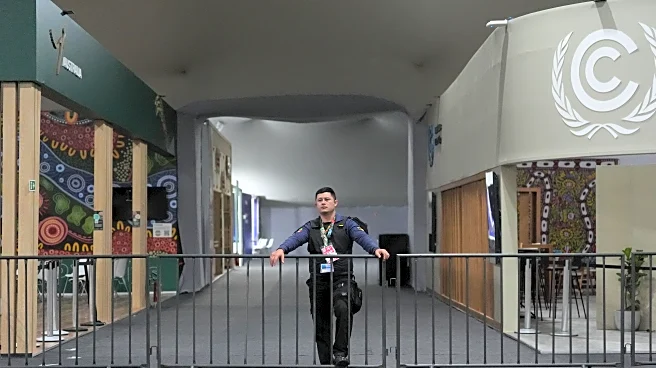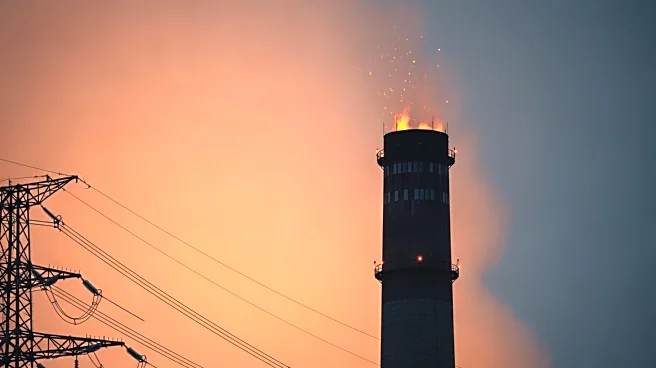BELEM, Brazil (AP) — Several nations and environmental groups on Friday slammed proposals put forward at the U.N. climate talks in Brazil, saying they failed to explicitly mention the cause of global warming
— the burning of fuels such as oil, gas and coal.
The proposals, released on what was to be the last day of the talks, came on the heels of a fire on Thursday that briefly spread through pavilions of the conference known as COP30 on the edge of the Amazon, prompting evacuations. Officials said 13 people were treated for smoke inhalation.
A key text among host Brazil's proposals — called the mutirao decision — deals with four sticky issues, including climate financial aid and strengthening inadequate national climate plans.
A second big issue that has loomed over the talks in the city of Belem is creating a detailed road map for the world to phase out fossil fuels. Any such plan would expand on a single sentence—to “transition away” from fossil fuels—agreed upon two years ago at the climate talks in Dubai.
That language has not changed since and greenhouse gas emissions continue unabated, heating the planet, which leads to more frequent and intense extreme weather events such as heat waves, floods and prolonged drought and wildfires.
More than 80 nations have called for stronger directions and Brazilian President Luiz Inácio Lula da Silva also pushed for it earlier this month.
On phasing out fossil fuels, the mutirao decision says that it “acknowledges that the global transition towards low greenhouse gas emissions and climate-resilient development is irreversible and the trend of the future.”
The text “also acknowledges that the Paris Agreement is working and resolves to go further and faster,” referring to the 2015 climate talks that established the goal to limit global warming to 1.5 degrees Celsius (2.7 degrees Fahrenheit), compared to the mid-1800s.
Some nations thought the text didn't go nearly far enough.
An upset response letter was drafted by some countries to the documents, possibly further delaying the proceedings, which need near consensus unanimity. The letter was from 36 nations, including wealthy ones such as the United Kingdom, France and Germany along with smaller climate vulnerable islands Palau, Marshall Islands and Vanuatu.
“We express deep concern,” the letter said. “In its present form, the proposal does not meet the minimum conditions required for a credible COP outcome.”
“We cannot support an outcome that does not include a road map for implementing a just, orderly, and equitable transition away from fossil fuels," it added. "This expectation is shared by a vast majority of parties, as well as by science and by the people who are watching our work closely.”
Activists were just as unhappy.
“Hopes were raised by initial proposals for road maps both to end deforestation and fossil fuels, but these road maps have disappeared," Greenpeace climate policy expert Tracy Carty said.
"We’re again lost without a map to 1.5°C and fumbling our way in the dark while time is running out," she added.
Bronwen Tucker of the advocate group Oil Change International called it “a shamefully weak text that fails to mention fossil fuels, fails to deliver accountability towards rich countries’ finance obligations, and only makes vague promises on adaptation.”
David Waskow of the World Resources Institute said that it was clear the COP presidency was “trying to push this to conclusion as fast as they can.”
While COP30 was to end Friday, the U.N. climate talks usually extend an extra day or two.
___
Read more of AP’s climate coverage at http://www.apnews.com/climate-and-environment
___
The Associated Press’ climate and environmental coverage receives financial support from multiple private foundations. The AP is solely responsible for all content. Find the AP’s standards for working with philanthropies, a list of supporters and funded coverage areas at AP.org.
___
This story was produced as part of the 2025 Climate Change Media Partnership, a journalism fellowship organized by Internews’ Earth Journalism Network and the Stanley Center for Peace and Security.









